When the Sky Gives You Lemons... Head to the Cook Tent!
Well, it's raining. Again. With only two days left to finish our data collection, we had no choice but to suit up and head out into the field to try and collect our remaining samples. We tried to time it with a slight break in the weather, and we ended up with about two hours of 'dry-time' to get a couple of extra AMS fabrics in pits 3 and 8. After that, however, the rain came back in full force. Needless to say, we were persuaded to head back to camp a few hours earlier than we wanted to...
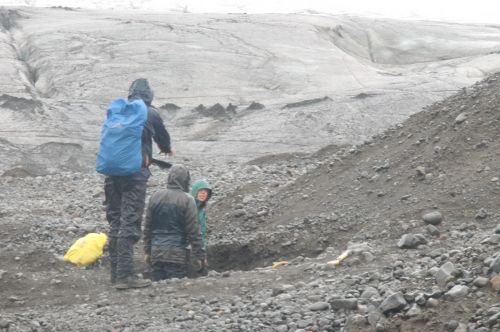
Upon return, we (ironically) received a great question in the Ask the Team Forum from Christopher at Saint Mark Catholic School. He inquired about how the rain affects our ability to collect relevant data for AMS and Pre-Consolidation sampling. Great question Christopher! The rain certainly affects our ability to collect sufficient and relevant samples for the project.
While the rain itself does not affect the arrangement of magnetic particles of till in the AMS samples, it does affect our ability to properly extract and clean samples. The rain saturates the samples, causing smaller silt and sand sized clasts to 'clump' together. When using the wire saws to clean the tops of the sample cubes before capping them, these clumps can create large voids in the samples, making them unfit for analyzing back home. Therefore, we do not collect samples in heavy rain and try our very best to time our sampling for breaks in the weather.
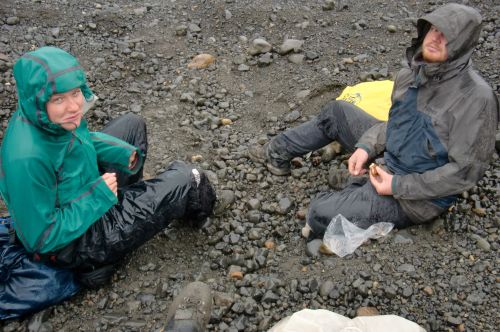
Christopher's question brings up a crucial component of scientific fieldwork: being flexible in your data collection plans and accepting that there are outside forces like the weather that can hinder your plans.
When you're sitting in a lab or classroom planning out a field season, it's easy to overlook some of the complications that might arise when you actually go into the field. For example, when Dr. Iverson and Dr. Hooyer saw how difficult getting plastic boxes into the tills at Múlajökull could be during their short season last year, they decided to come up with an alternative method for getting AMS samples. Back in Iowa, Neal came up with a system using metal boxes and columnar extruders that fit inside of them with the idea that this would make sampling the till easier. He tried this new system on Iowa tills and found that it worked very well.
When we got to Múlajökull, however, we found that the extraction process was more time consuming than pushing in the plastic boxes, even though only one out of two or three of the plastic boxes ends up being good enough to keep. The Múlajökull till just did not behave as Neal had hoped it would, and we had to come up with a solution to this problem in the field.
In all kinds of fieldwork, sometimes things just don't go as expected. When these problems arise, researchers have to come up with new and innovative solutions, or, make new plans all together. When it comes down to it, there are certain variables in your research that you simply cannot control, and you must be flexible in order to deal with them appropriately.
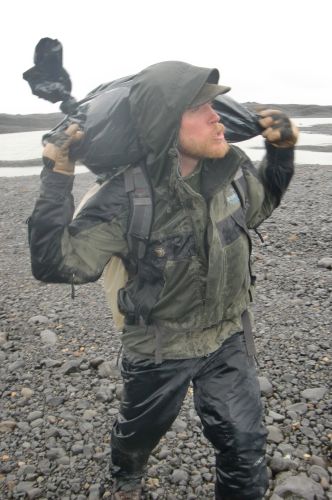
The hardness of the Múlajökull till was a problem we had to overcome early on, and the rain is a challenge that we have to confront today. Luckily, we had planned for a few days of bad weather, so we have already taken most of the samples that we wanted to get this field season.
If we had not had this foresight in our first two weeks of fieldwork, we would either be trying to stick it out and possibly taking lower quality samples, or having to decide which sites we want to sample and which ones we have to skip over this year. With this rain, the latter option would likely have been our choice.
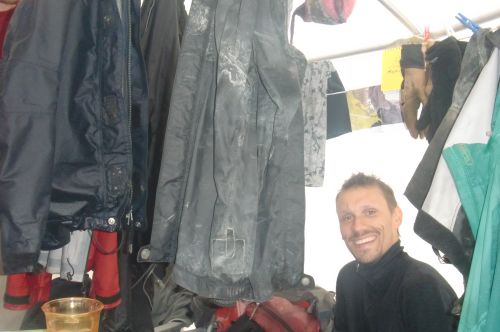
The excessive rain here at Múlajökull is also affecting our Nordic counterparts and their work in logging the stratigraphic columns of glacial till in the drumlins. I spoke with Ívar about how the rain is affecting their work, and he told me that it affects not only their ability to identify and measure the different layers of till in the drumlins, but it also simply affects their ability to accurately sketch and write these logs in their field notebooks.
When I asked Ívar how their team is adapting their fieldwork to meet the conditions we are experiencing, he said that they have gradually acquired appropriate tents, rain gear, and other equipment over the years to stay warm and dry when not working and to try their best to stay warm and dry while working.
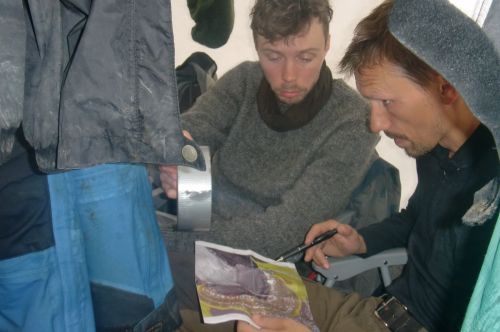
So here we are: back in the cook tent, guilt-free, nearly done, half-damp, a little stir crazy... but still have fun!
Tomorrow, we will all head back out into the field, rain or shine, and hopefully get a few more AMS samples and stratigraphy logs. For now, you can sit back, relax (like we are!), and enjoy some pictures of our cook tent extravaganza!
Cheers!
Jamie and Reba
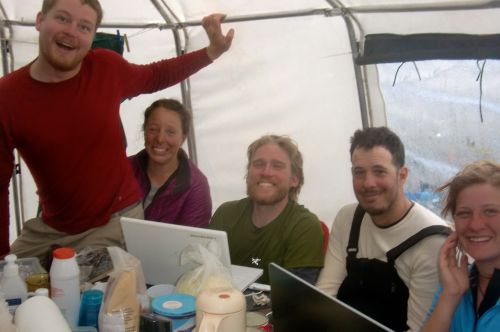
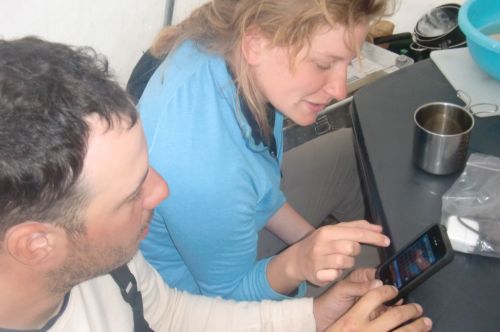
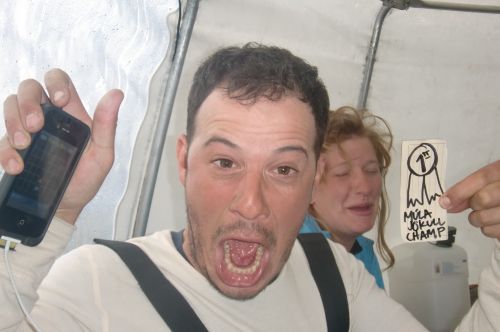


Comments